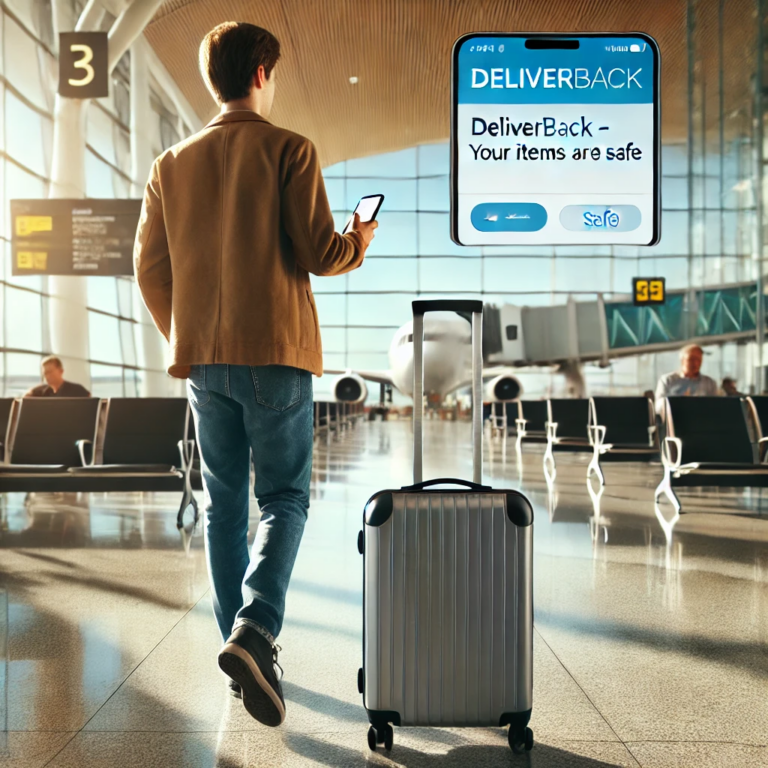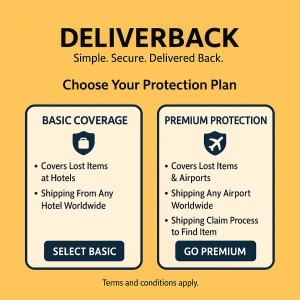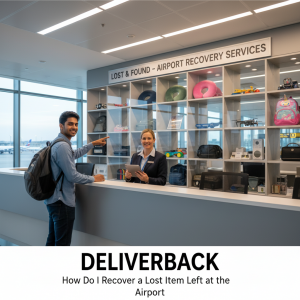Traveling is an exhilarating opportunity to explore new places, meet people, and create unforgettable memories. However, for many, it can also bring a mix of excitement and apprehension known as travel anxiety. Whether you’re a frequent traveler or preparing for a rare journey, travel anxiety can disrupt your experience before it even begins. This guide will explore the causes, symptoms, and strategies to overcome travel anxiety, especially focusing on flight-related concerns and pre-flight nervousness. Let’s look at how you can enjoy the anticipation of your travels and leave anxiety behind.
What Is Travel Anxiety?
Travel anxiety is a specific type of anxiety triggered by the thought of, or the act of, traveling. It can affect anyone, regardless of how often they travel or how far they go. This feeling often manifests as an intense worry about things that could go wrong on a trip. For some, travel anxiety is triggered by the journey itself, while for others, it may be tied to specific aspects, such as flying, navigating unfamiliar places, or being away from home comforts.
Recognizing Travel Anxiety Symptoms
Identifying symptoms of travel anxiety is essential for managing it effectively. Symptoms vary from person to person but commonly include:
- Physical Symptoms: Sweating, increased heart rate, shortness of breath, nausea, or stomach discomfort.
- Emotional Symptoms: Feelings of dread, irritability, mood swings, or even fear of the unknown.
- Behavioral Symptoms: Avoiding travel altogether, obsessively checking or double-checking travel plans, or engaging in repetitive “safety” behaviors.
Recognizing these symptoms can be the first step in managing travel anxiety. By understanding your personal experience, you’ll be better equipped to identify what triggers your anxiety and the best ways to address it.
Understanding Pre-Flight Anxiety
Pre-flight anxiety is one of the most common forms of travel anxiety. For many, the thought of boarding a plane is enough to spark an overwhelming sense of worry. This type of anxiety typically begins before the trip, often surfacing during the preparation phase or even weeks before departure.
Causes of Pre-Flight Anxiety
Some common causes of pre-flight anxiety include:
- Fear of Flying: Concerns over turbulence, confined spaces, or a general fear of being in the air.
- Security Checks: The rigorous process of going through security, fearing mishaps or delays.
- Loss of Control: Knowing that once onboard, they cannot control the situation, which can be distressing.
- Fear of Heights or Claustrophobia: Both are common fears that can be exacerbated by flying.
Pre-flight anxiety can make the anticipation of travel feel daunting, but with practical strategies, you can make this phase smoother.
Practical Tips for Overcoming Flight Anxiety
Overcoming flight anxiety doesn’t happen overnight, but with gradual effort, it’s possible to manage and even reduce this type of travel anxiety significantly. Here are some effective methods to consider:
-
Educate Yourself: Understanding how planes operate and the high safety standards in aviation can alleviate fear. Learning that turbulence, for example, is a common occurrence can make it less intimidating.
-
Practice Deep Breathing: Deep breathing exercises can help calm the nervous system. Before your flight, practice breathing techniques such as inhaling for a count of four, holding, then exhaling slowly.
-
Mindfulness Meditation: Meditating regularly, even just a few minutes a day, can reduce overall anxiety levels. Use meditation apps specifically designed for flight anxiety or general relaxation.
-
Prepare Early: To avoid the additional stress of rushing, arrive at the airport with time to spare. Completing security checks and finding your gate early can give you a sense of control and reduce pre-flight anxiety.
-
Limit Caffeine and Sugar: Both caffeine and sugar can increase heart rate, which might exacerbate feelings of anxiety. Instead, stay hydrated with water, which can help maintain a calm state.
-
Seek Professional Support: If your flight anxiety is severe, consider cognitive-behavioral therapy (CBT), which has proven effective in addressing various forms of travel anxiety. CBT focuses on changing thought patterns that trigger anxious responses, leading to more relaxed travel experiences.
General Tips to Manage Travel Anxiety
Flight anxiety isn’t the only type of travel anxiety; some may experience unease about exploring unfamiliar destinations, staying away from home, or managing logistics. Here are ways to ease these worries:
1. Create a Comfortable Routine
Bringing small comforts from home, such as a favorite pillow, playlist, or essential oils, can make new surroundings feel familiar. This can be especially comforting for those who struggle with adjusting to different environments.
2. Plan Your Journey in Advance
One of the main drivers of travel anxiety is the fear of unexpected situations. Researching your destination, checking for weather updates, and planning for contingencies can help. However, be cautious not to over-plan, as flexibility is key to managing travel stress.
3. Stay Connected with Friends and Family
For travelers who fear being far from loved ones, regular check-ins or sharing travel updates can provide comfort. Knowing that someone is just a phone call away can lessen feelings of isolation or homesickness.
4. Exercise Regularly Before Traveling
Exercise is one of the best natural remedies for anxiety. Engaging in physical activity before your trip releases endorphins, reduces muscle tension, and promotes better sleep, which can all contribute to reduced travel anxiety.
5. Take Breaks During Your Journey
If your trip involves multiple stages, such as connecting flights or layovers, take time to relax and reset. Listen to music, read a book, or practice deep breathing exercises to stay centered.
6. Use Deliverback for shipments of luggage or lost items
One effective way to ease travel anxiety is by planning ahead for common stressors, like the fear of losing personal belongings. With services like Deliverback, travelers can rest easy knowing that if they leave something behind, there’s a reliable solution to quickly retrieve it. By reducing the worry about potential mishaps, Deliverback helps travelers stay focused on enjoying their journey, making the entire experience more relaxed and stress-free
Practical Strategies for Overcoming Travel Anxiety During Your Trip
Once your trip is underway, maintaining calm can be challenging, especially if travel anxiety symptoms resurface. Here are some in-the-moment strategies:
-
Use Calming Techniques: If you feel anxious, focus on your breathing, recite a comforting mantra, or practice visualization techniques. Imagining yourself in a calm place can be soothing.
-
Focus on Positive Aspects: Redirecting your thoughts to the exciting or relaxing experiences awaiting you can lessen negative thoughts. Whether it’s meeting loved ones, exploring a new city, or indulging in local cuisine, staying focused on the benefits can distract you from anxious thoughts.
-
Challenge Anxious Thoughts: Many anxious travelers worry about the worst-case scenario, but try to remind yourself that statistically, travel is very safe. Combat these thoughts by focusing on past successful journeys or enjoyable travel experiences.
-
Limit News and Social Media Before Traveling: Constant exposure to global events or travel mishaps can increase anxiety. Limiting media consumption during the days leading up to your trip can create a more peaceful mental space.
When to Seek Professional Help for Travel Anxiety
If your travel anxiety prevents you from traveling or makes the experience extremely distressing, consider reaching out to a mental health professional. Therapies such as CBT or exposure therapy can gradually help you face and overcome your fears. In severe cases, medication might also be considered, but only under professional guidance. Remember, there is no shame in seeking help, and doing so could open up a world of travel opportunities that might have felt out of reach.
Embracing a Positive Mindset Towards Travel
As you work through travel anxiety, try to keep an open mind. Celebrate each small victory along the way, like booking a ticket or feeling calm while packing. Overcoming travel anxiety takes time and patience, but with consistent effort, you can make travel a rewarding part of your life. Remember, the world is full of amazing experiences waiting to be discovered, and every journey you take is a step towards growth and resilience.
Conclusion
Travel anxiety is a common but manageable challenge. By understanding the causes, recognizing the symptoms, and implementing effective strategies, you can take control of your travel experiences and look forward to future trips. Whether you’re dealing with flight anxiety, pre-flight nerves, or general travel anxiety symptoms, these techniques can help you enjoy every part of your journey, from planning to exploring new destinations. Don’t let travel anxiety hold you back—embrace the adventure, knowing that each trip brings you closer to becoming a more confident, resilient traveler.


